Donald Trump has dominated Republican politics for so long that it can be hard to remember the time when he did not. It’s easy to forget that at the beginning of 2016 he started the Republican primary process by losing the Iowa caucuses to Ted Cruz, his more conservative rival.
“He stole it,” Trump tweeted afterwards, graceful as ever in defeat. “The State of Iowa should disqualify Ted Cruz from the most recent election on the basis that he cheated — a total fraud!” Trump went on to stun the world, of course, by winning the Republican nomination, then the White House. American politics would never be the same again.
Skip forward to 2024 and Trump is still grumbling about stolen elections. But he’s no longer the maverick Republican insurgent. He’s the maverick incumbent now — a king across the water — and nobody, it seems, can knock off his crown.
These are untested waters: a president has never been criminally charged before
Journalists and psephologists are still having fun envisaging scenarios in which Ron DeSantis — check out his ground game in Iowa! — or Nikki Haley — independents in New Hampshire like her! — might find a way to topple him. The more boring truth is that, assuming the polls are not monumentally wrong, Trump will win Iowa next week and New Hampshire the week after. He’ll go on to secure the nomination again and challenge Joe Biden — or perhaps an emergency Democrat substitute — in November.
The biggest imponderable of 2024 is not who can stop Trump but what might happen in his various trials. It’s so complicated that even the most ardent Trump lovers and loathers struggle to keep up. In New York, there’s the civil defamation suit, the family business pyramid scheme trial and the criminal hush-money tax fraud case. In Georgia, there are the thirteen criminal counts against him and eighteen other defendants over attempts to undo the 2020 election result. And then there are the blockbuster federal indictments: the hoarding classified documents in Florida case and the alleged attempt to “defraud the United States” in the build-up to January 6.
If Trump is found guilty or even sent to prison on any of the ninety-one criminal counts he faces, would that scupper his hopes of returning to the White House? Will people become so sick of the legalistic back-and-forth in coming months that they choose to elect Joe Biden again just to put an end to it?
Nobody knows. These are untested waters: a president has never been criminally charged before. What we can say is that, so far, all the indictments have boosted him in the polls. Americans have a healthy distrust of their highly politicized legal system and most Republicans — not to mention many independents — regard the Democrat-led legal persecution of him as unjust. Since August 24, when the infamous mugshot of him was taken in Fulton County Jail, Georgia, Trump’s popularity has only grown. Trump knows that the legal circus makes him the story again and turns the Republican nomination race into a sideshow. That’s why, a week before Iowa votes, he chose to turn up in court in Washington, DC to hear whether his appeal on grounds of presidential immunity might be accepted.
It’s not all about the trials. As DeSantis and Haley are finding out, Trump has co-opted the Republican Party’s campaign apparatus. Ambitious Republican politicians must support Trump or face electoral oblivion. His madcap MAGA movement has solidified into an awesome political machine.
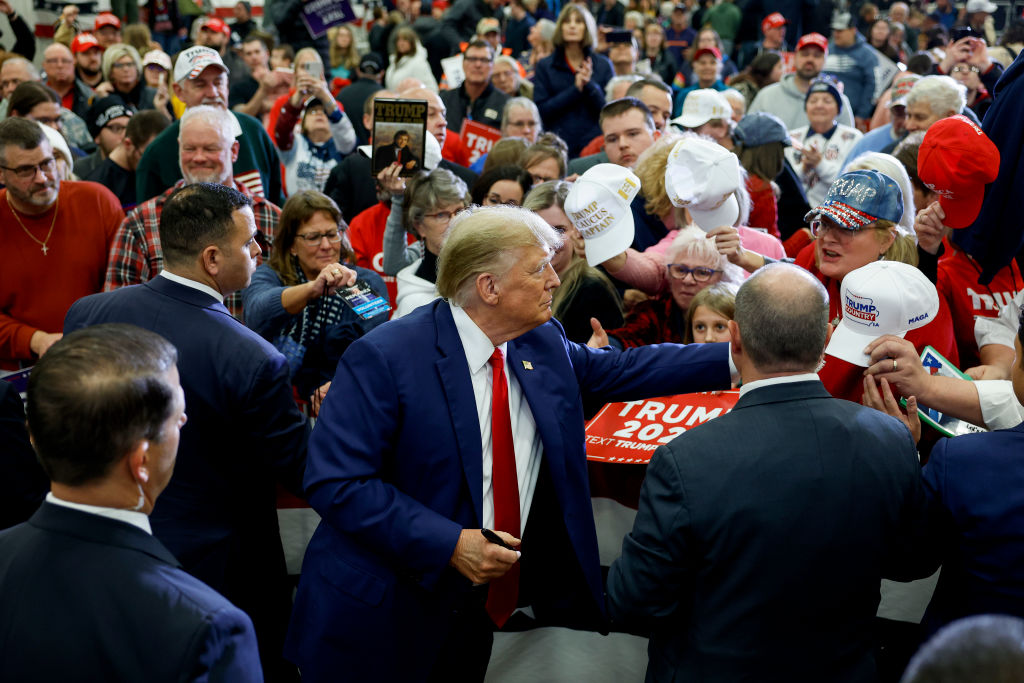
Trump appears to be invincible, at least as far as the Republican race goes, and everything that doesn’t kill him makes him stronger. Why is that? It’s obvious that Biden is betting the White House on the fact most Americans dislike Trump. Why do Republicans insist on cleaving ever more closely to such a divisive figure?
Trump may have grown in power but he’s essentially the same ego-crazed maniac that he was eight years ago. What is changing is the soul of conservative America. The religious right, which dominated conservatism from the 1960s to the end of the George W. Bush era, has become less pious and more political. It has been Trumpified.
Eight years ago in Iowa, the powerful white evangelical lobby had just enough clout to hand victory to Cruz, a Southern Baptist who would urge his supporters to “Awaken the body of Christ that we may pull back from the abyss.” Back then, most evangelical leaders were disturbed by Trump — an adulterous braggart, a casino magnate who claimed to love the Bible but couldn’t cite a single verse. It turned out, however, that their flocks cared less about morality and more about Trump’s thrilling ability to offend the wicked liberal left.
In 2016 and 2020, Trump won more than three-quarters of the white evangelical vote. Stranger still, the Pew Research Center found that, from 2016 to 2020, voters with “warm feelings toward Trump” were far more likely to “begin identifying as born-again or evangelical Christians.” In other words, white people, rather than voting for Trump because they are Christian, have started to declare themselves Christian because they support Trump. “Politics has become the master identity,” Ryan Burge, a Baptist professor of political science told the New York Times this week. “Everything else lines up behind partisanship.”

Trump-supporting evangelicals are less likely than their parents to attend church, yet their world view is still informed by radical Protestant notions of an inevitable End Times clash between good and evil on Earth. As these faithful voters become more worldly, election results take on an increasingly apocalyptic importance.
That’s why so many online Trump memes show him as a messianic figure fighting against the satanic Democrats. Trump himself enjoys playing with these notions. He amplifies the biblical proportions of his tribulations at the hand of the deep state and he has made “retribution” the theme of his 2024 campaign. On Sunday, he posted on his Truth Social account a picture of himself with the caption “One of God’s finest warriors.” On Friday, he shared a “God Made Trump” video in which a gravelly-voiced narrator declares him to be “a shepherd to mankind who won’t ever leave or forsake them.”
To the vast majority, Trump’s savior complex is risible. But his opponents underestimate his spiritual appeal at their peril. As religion becomes more political, politics is becoming more religious — and reason must take a back seat. A survey in 2021 found that a staggering 29 percent of white evangelicals thought that “Donald Trump has been secretly fighting a group of child sex traffickers that include prominent Democrats and Hollywood elites.”
It is simplistic to think, as Biden does, that America can be divided into paranoid Trumpist zealots and everybody else. The reality is far weirder. The Church of Trump is broad and you don’t have to be a true believer to join. Most Republican-leaning voters do not believe Trump is heaven-sent, of course. They do think, however, that the hatred he inspires among their enemies is proof of his unworldly virtue. And they find it sinister that, in 2024, the biggest obstacles to his progress are not democratic but legal. Or, as Trump likes to say: “They’re not after me, they’re after you and I just happen to be in their way.”
On October 2, as one of his New York cases dragged on, Trump reposted another absurd picture on Truth Social of himself sitting next to Jesus Christ in the dock. Journalists and pundits scoffed at his messianic delusions. Surely America cannot vote for this blasphemous moron again! But as we approach another potentially cataclysmic presidential election in America, as Trump faces trial after trial and somehow survives, tens of millions of spiritually minded voters — not all of them lifelong Republicans — will be thinking: maybe God is on his side.
This article was originally published in The Spectator’s UK magazine. Subscribe to the World edition here.



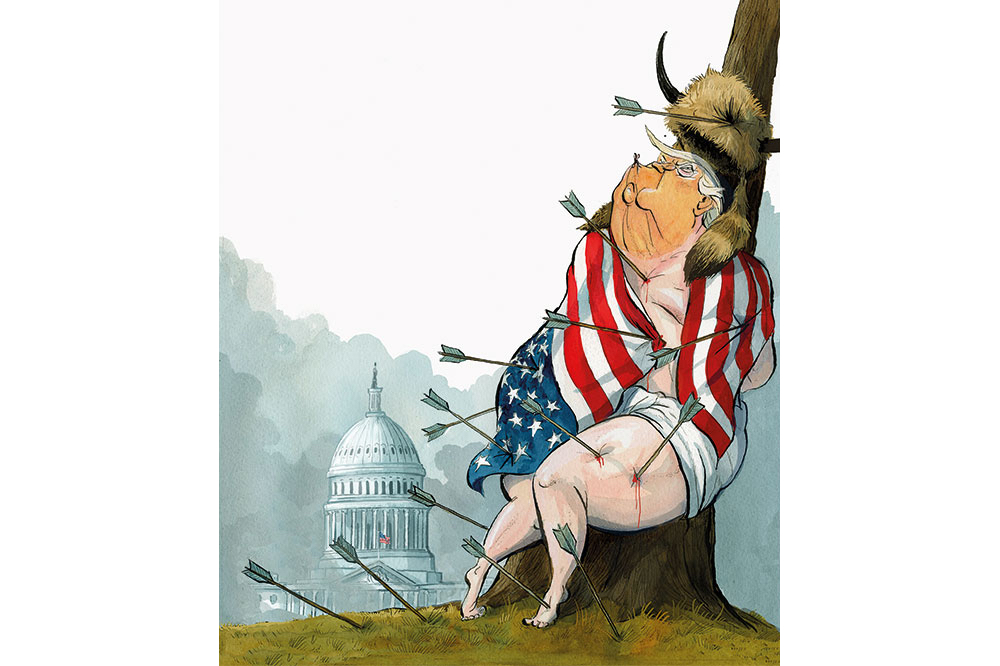







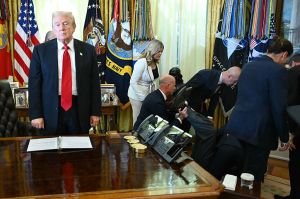
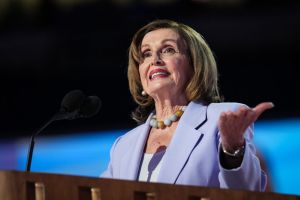
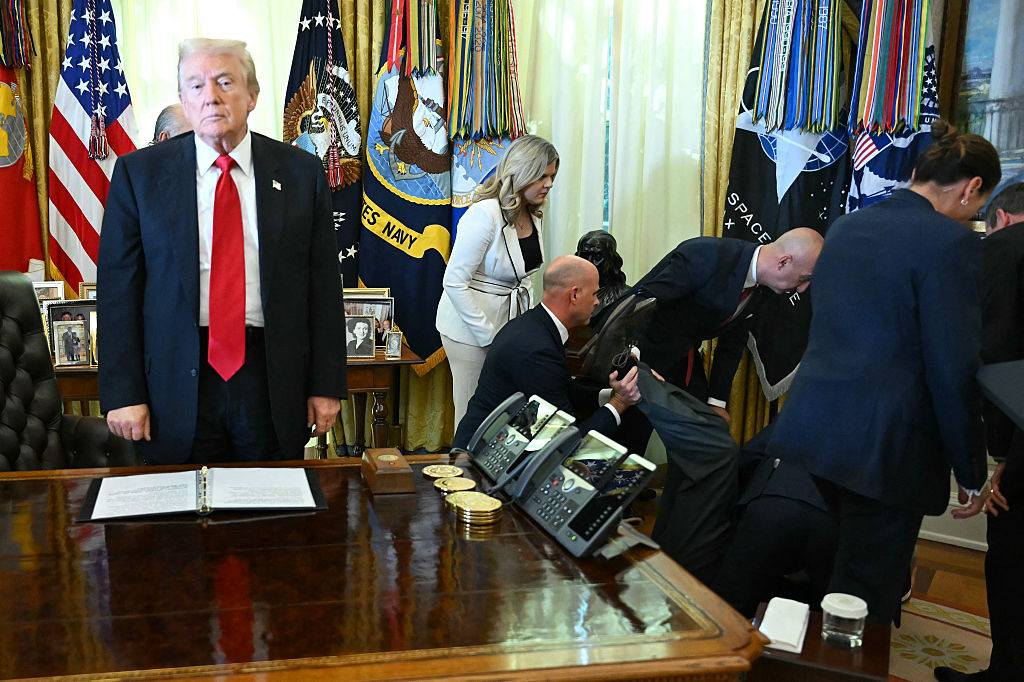

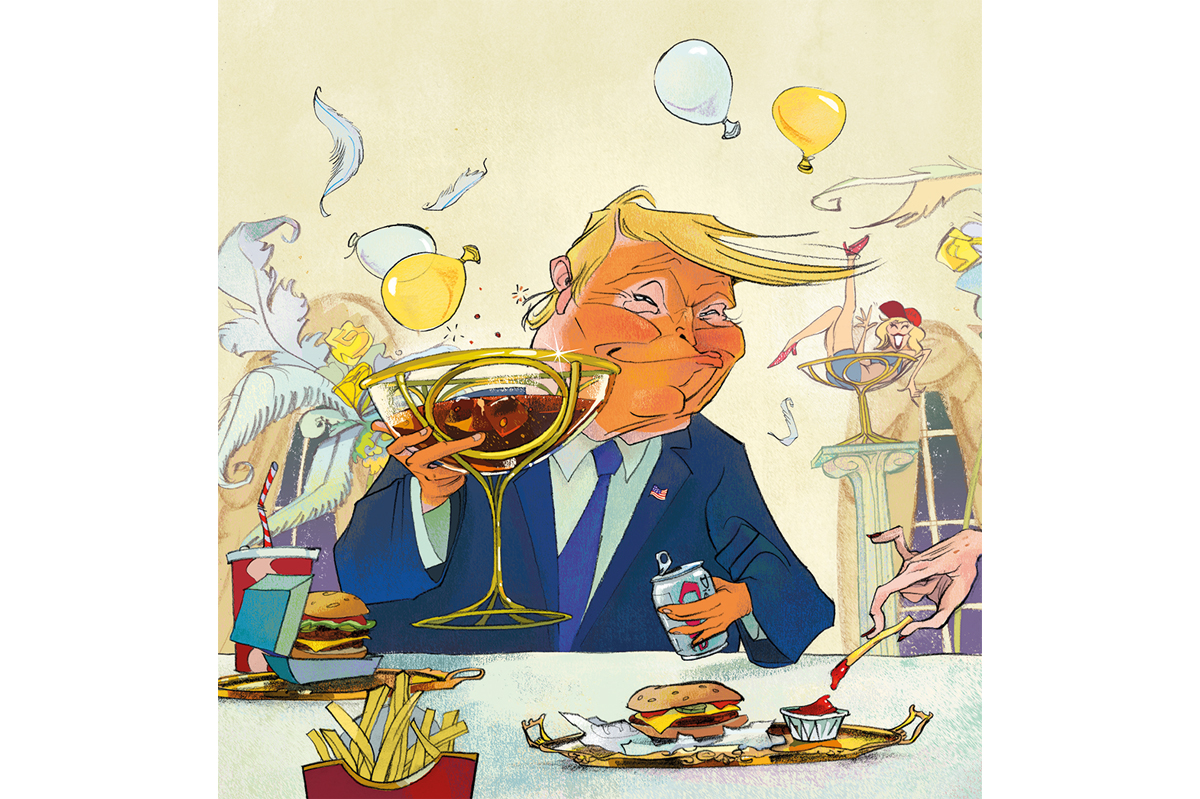
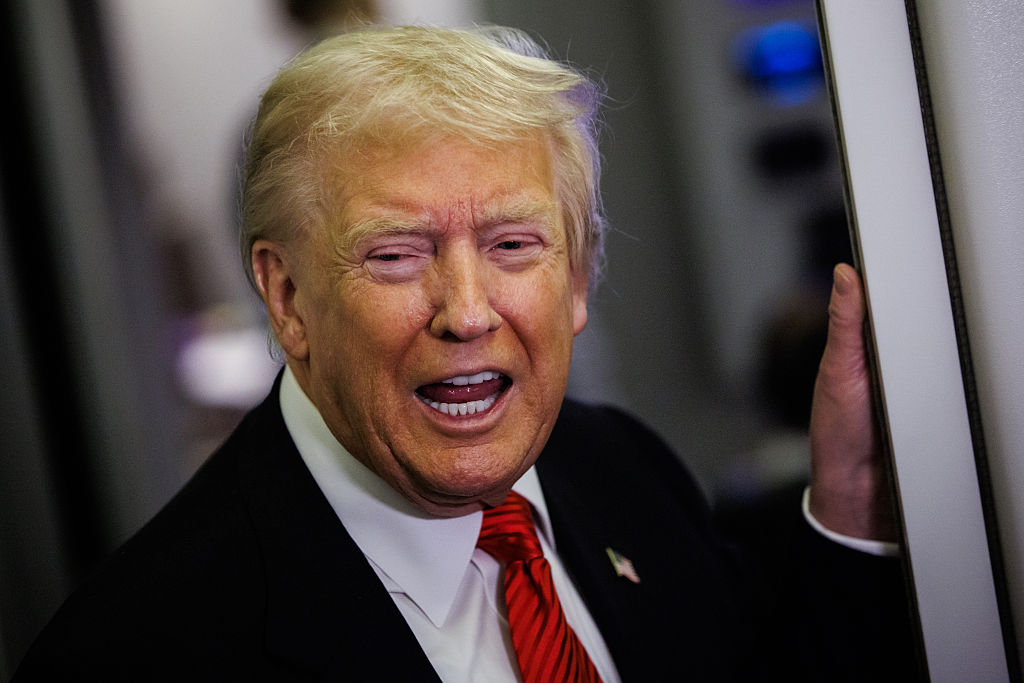









Leave a Reply